From November 29 to December 2, the 8th International Conference on Energy Internet and Energy Systems Integration (IEEE EI2 2024) was held in Shenyang. The conference was hosted by the IEEE Power and Energy Society, the Chinese Society for Electrical Engineering, Shenyang University of Technology, and Tsinghua University. The theme of the conference was “Towards Green and Intelligent Energy Internet,” and it focused on basic research, key technologies, and engineering applications in the field of electrical energy. Seven keynote speakers were invited, and the conference organized over 70 forums and 5 poster sessions, attracting more than 1,000 industry experts and scholars from both domestic and international venues.
The opening ceremony was attended by the following guests: Shu Yinbiao, Academician of the Chinese Academy of Engineering, President of the Chinese Society for Electrical Engineering, and 36th Chairman of the International Electrotechnical Commission (IEC); Wu Jiangxing, Academician of the Chinese Academy of Engineering, Director of the National Digital Switching System Engineering Technology Research Center; Tang Lixin, Academician of the Chinese Academy of Engineering, Member of the Standing Committee of the Party Committee and Vice President of Northeastern University; Wang Qingdong, Secretary of the Party Leadership Group and Director of the Liaoning Provincial Department of Education, as well as Deputy Secretary of the Provincial Party Committee’s Education Work Committee responsible for daily operations; Wang Yuhui, Department Member of the Organization Department of Liaoning Provincial Party Committee; Zhang Haibo, Department Member and Vice Director of the Liaoning Provincial Department of Science and Technology; Liu Weidong, Department Member and Vice Chairman of the Liaoning Provincial Association for Science and Technology; Sun Hongbin, Vice Secretary of the Party Committee and President of Taiyuan University of Technology; Zhong Zhiyong, Academician of the Canadian Academy of Engineering and Professor at The Hong Kong Polytechnic University; Zhang Yan, Academician of the European Academy of Sciences and Professor at the University of Oslo; Wang Zengping, Professor at North China Electric Power University; Sun Dayan, General Manager of State Grid Electric Power Space Technology Co., Ltd.; Tang Ruhai, Director, General Manager, and Deputy Secretary of the Party Committee of State Grid Liaoning Electric Power Co., Ltd.; Gao Kunlun, Vice President of China Electric Power Research Institute Co., Ltd.; Fang Jianbin, Director of the New Type Power System and International Standards Research Institute at Wuhan University, Director of IEC International Standards Promotion Center (Nanjing), and Deputy Secretary-General of the Chinese Society for Electrical Engineering; Zhao Jianjun, Deputy Secretary-General of the Chinese Society for Electrical Engineering; Jia Yuming, Party Secretary of Shenyang University of Technology; Zhang Ke, Vice Party Secretary and President of Shenyang University of Technology; Sun Qiuye, Member of the Party Committee and Vice President of Shenyang University of Technology. The opening ceremony was hosted by Chen Mei, Party Secretary of the Chinese Society for Electrical Engineering.
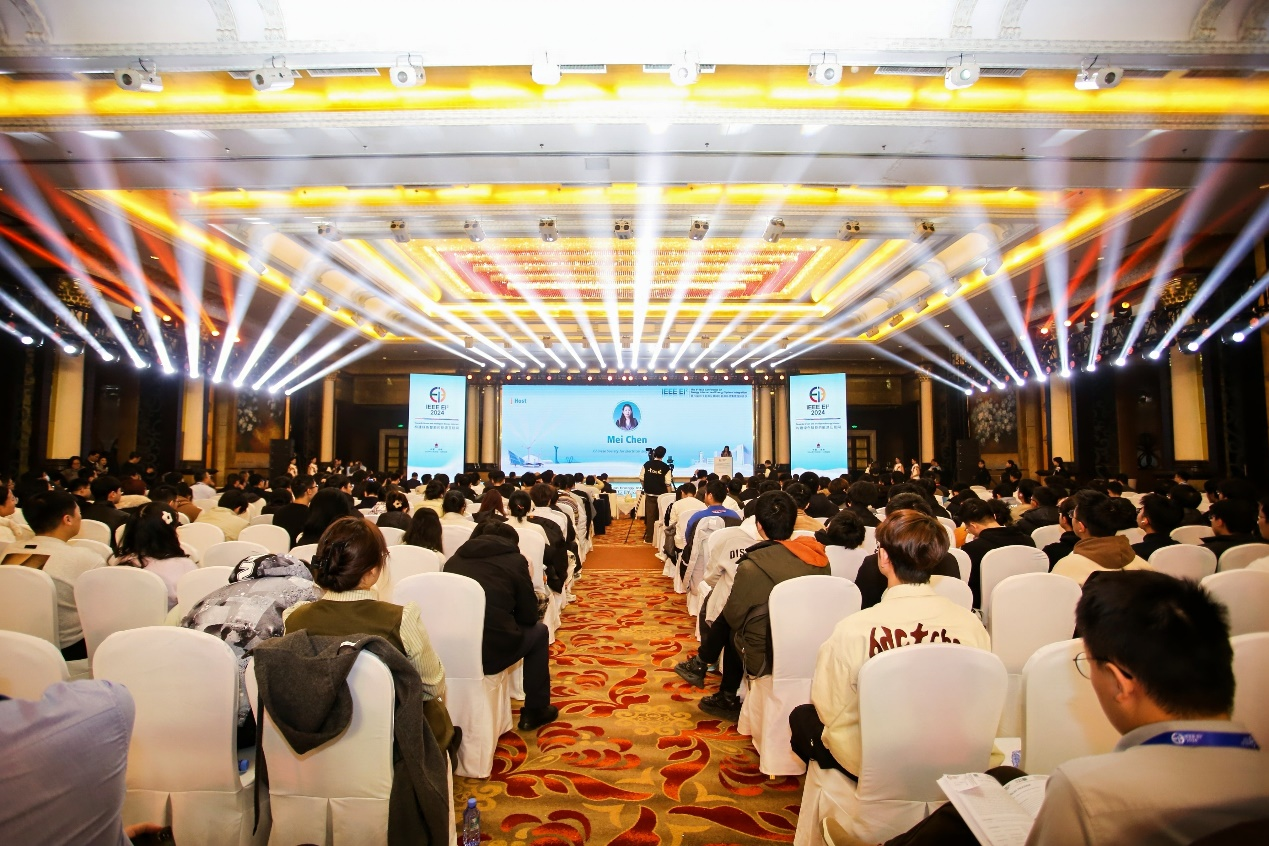
Shu Yinbiao gave a speech and delivered a keynote report. He noted that this year marks the 90th anniversary of the founding of the Chinese Society for Electrical Engineering. In 1934, a group of Chinese electrical science pioneers who had studied abroad, with the vision that "the electrical industry leads, and other industries follow," established the Chinese Society of Electrical Engineers, making significant contributions to the advancement of electrical science and the development of the electric power industry in China. In his report titled "Several Basic Issues in the Construction of New Type Power Systems," Shu emphasized that the goal of the new type power system is to create a deeply low-carbon power system, and the construction will be divided into three phases: the carbon peak stage (from now until 2030), the rapid carbon reduction stage (2031 to 2050), and the carbon neutrality stage (2051 to 2060). Future renewable energy development will focus on four main areas: the northwest "Shago Desert" large-scale base, the southwest water-wind-solar renewable energy development belt, southeast offshore wind power, and distributed photovoltaics in the Middle East. These will form three new giant transmission systems: the “Desert, Gobi and Wasteland” transmission system, the southwest “water-wind-solar” transmission system, and the offshore wind power transmission system. He further discussed the challenges of addressing the balance of power and energy in a high-proportion renewable energy system with randomness, fluctuations, and intermittency, ensuring the safe and stable operation of the new type power system with complex characteristics over multiple time scales, and finding the optimal development path for the new type power system from the perspective of economic and social development to achieve a balanced “low-carbon, safe, and economic” system. Achieving the "dual carbon" goals is a systematic project that requires the joint effort of the whole society, strengthening technological innovation, and pushing forward the construction of new type power systems to support the realization of these goals.
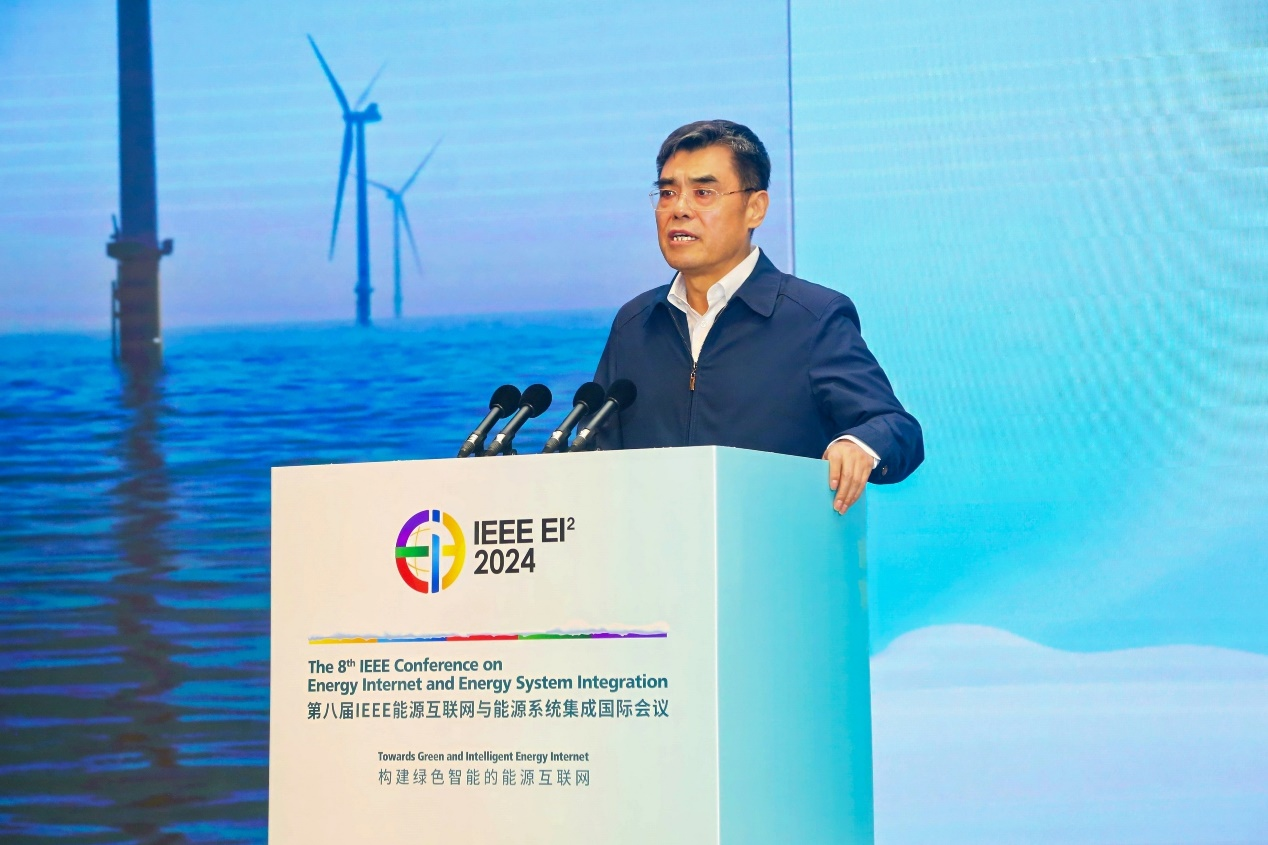
Shu Yinbiao delivering his speech and keynote report
Wang Qingdong, in his address, stated that Liaoning, as a major energy province, has actively ensured national energy security in recent years, aligning its goals with the "dual carbon" targets, optimizing energy structure, cultivating new energy industries, and driving the green and low-carbon transformation of economic and social development. The provincial government has proposed the "Six Major Goals" to strengthen energy security, enhance energy supply capabilities, and accelerate the green low-carbon transformation. He expressed hope that conference participants would leverage their expertise to explore the integration of energy and information industries, stimulate ideas, promote collaboration, achieve consensus, and generate new results for a better future.
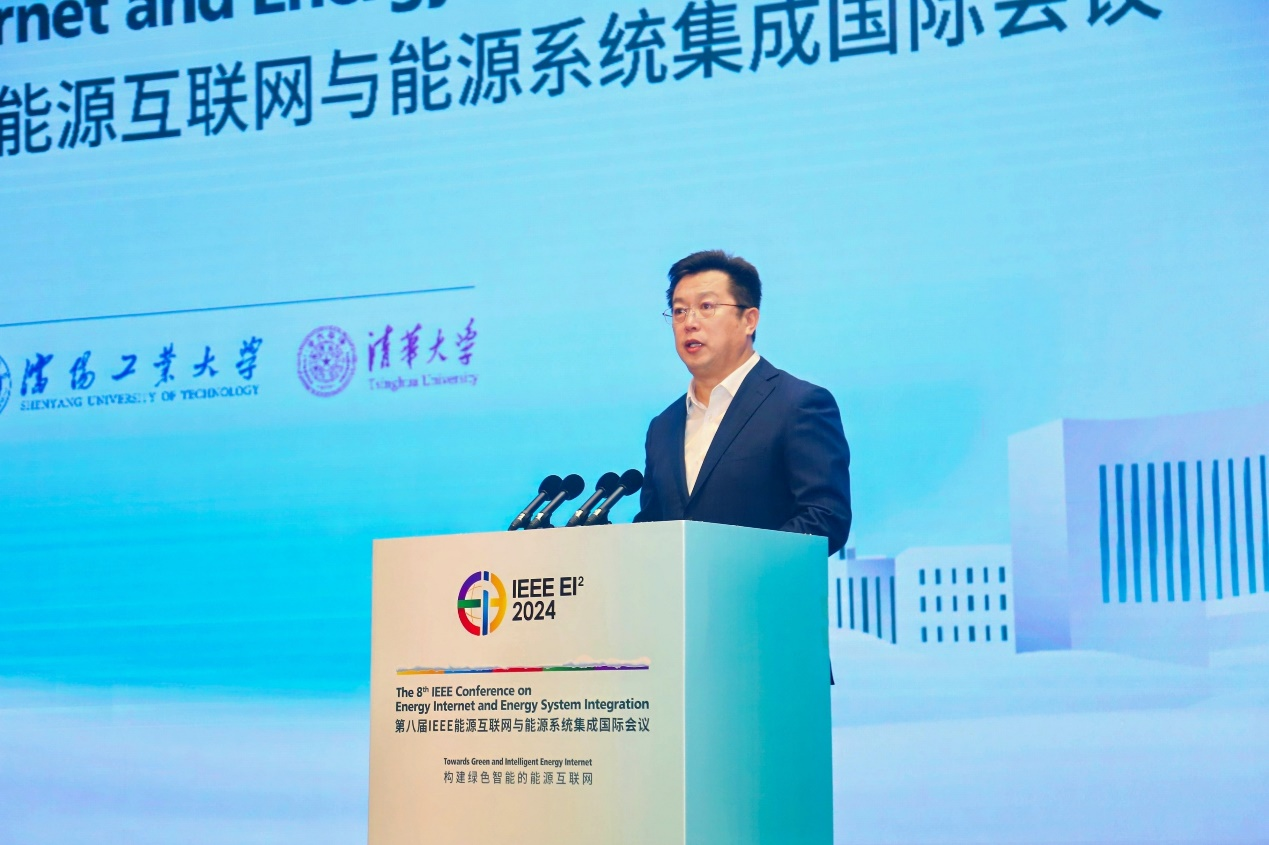
Wang Qingdong’s speech
Zhang Ke warmly welcomed all guests. He emphasized that Shenyang University of Technology has strong capabilities in electrical engineering, with a doctoral program in electrical engineering, national key discipline in electrical machinery and electrical appliances, and newly approved doctoral programs in energy and power engineering and artificial intelligence. The university serves national strategies and Liaoning’s industrial development, contributing its academic advantages in the fields of energy internet, smart grids, and renewable energy. The university has produced numerous technological achievements and trained a large number of electrical engineering talents. This conference is a recognition of the university’s efforts in electrical engineering and artificial intelligence disciplines, providing a platform and opportunities to utilize cutting-edge academic results for building an intelligent, efficient, and clean energy system to assist future development.
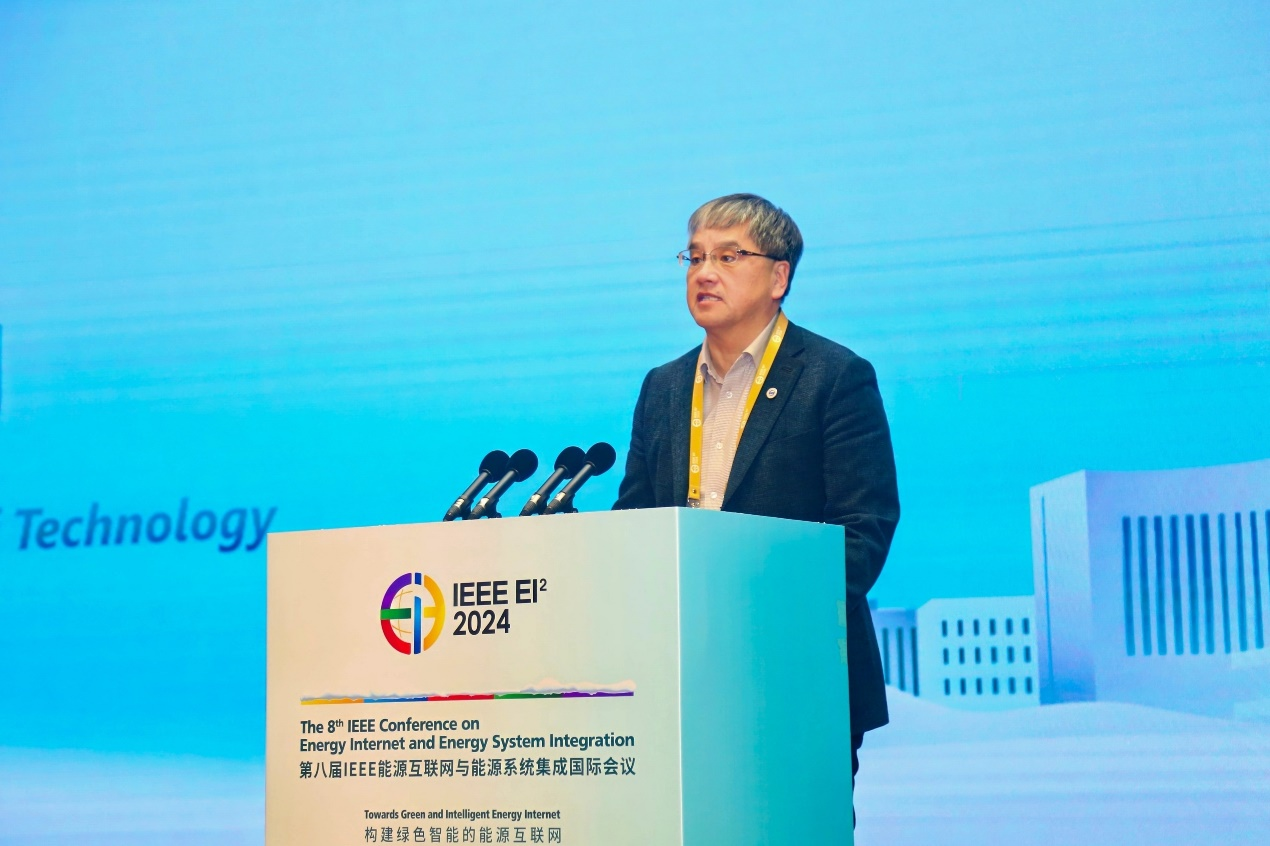
Zhang Ke’s speech
Zhong Zhiyong remarked that IEEE PES, as a leading global organization in the power and energy sector, is dedicated to guiding scientific research and technological innovation, promoting the dissemination of knowledge and technological advancement in the power and energy fields. The organization's focus is on advancing sustainable energy development and applications, ensuring the reliable operation of power systems, and supporting the deep integration of emerging technologies. IEEE PES contributes to building greener, smarter, and more reliable power and energy systems, helping to drive global energy transition and sustainable development.
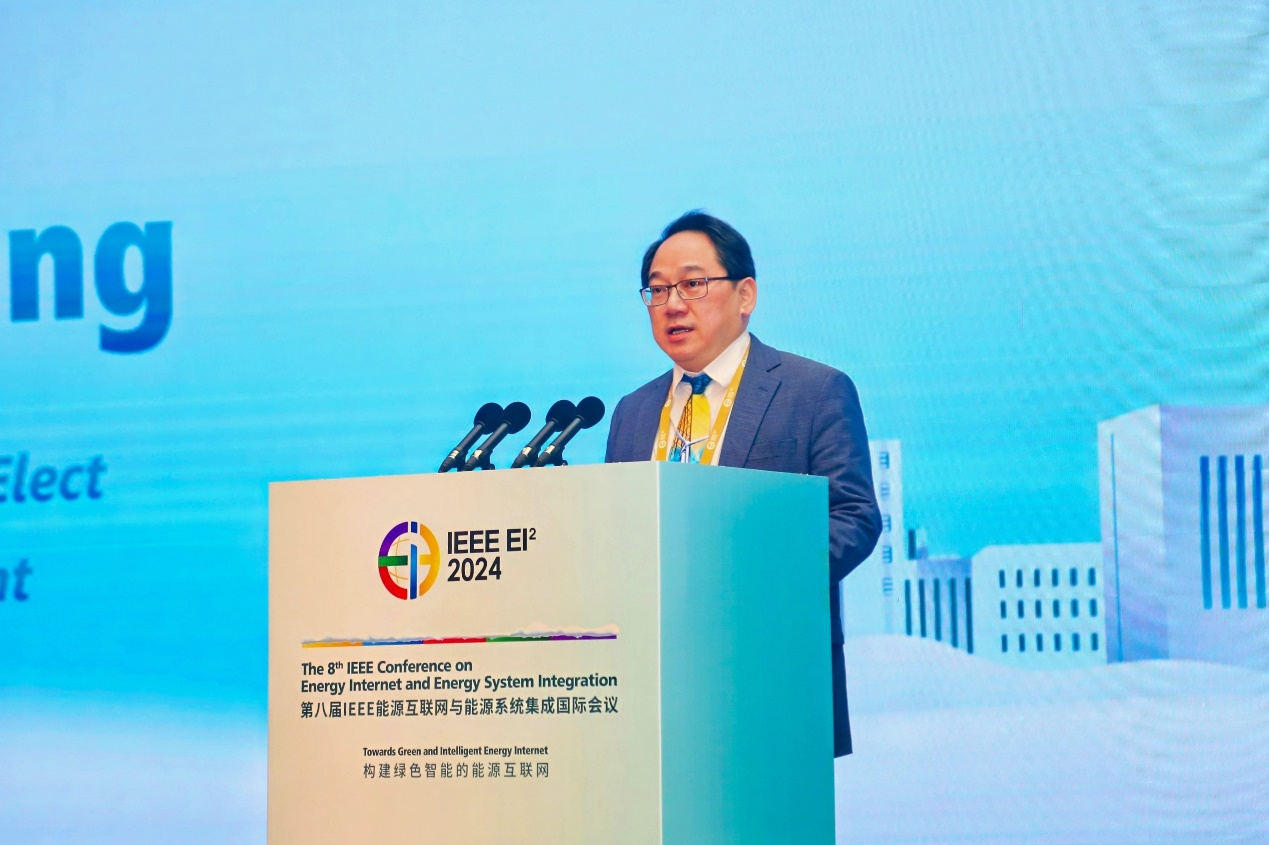
Zhong Zhiyong’s speech
A special ceremony for the presentation of the scroll representing the venues of previous conferences was held during the opening ceremony. Jia Yuming presented the scroll to the conference founder, Sun Hongbin, symbolizing the ongoing leadership of the EI2 conference in industry innovation and academic exchange. Sun Hongbin, in his speech, stated that the scroll commemorates the development of the EI2 conference, which will continue to uphold the spirit of open cooperation, enhance academic exchange, promote technological innovation, and strive to make the EI2 conference the most influential event in the energy internet field. He also introduced the newly launched Energy Internet English journal, which will work closely with the EI2 conference to contribute to the development of the energy internet.
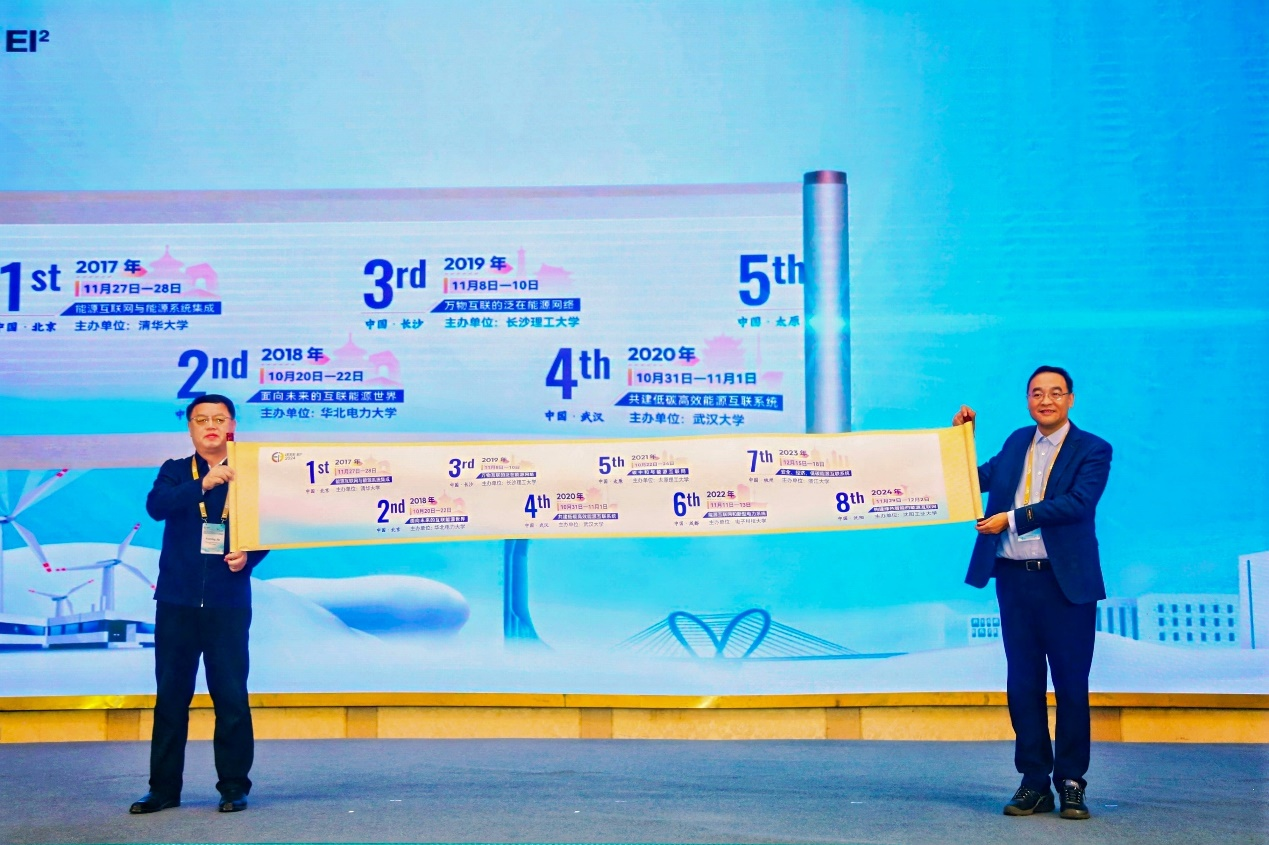
Presentation Ceremony for the Scroll Representing Previous Conference Venues
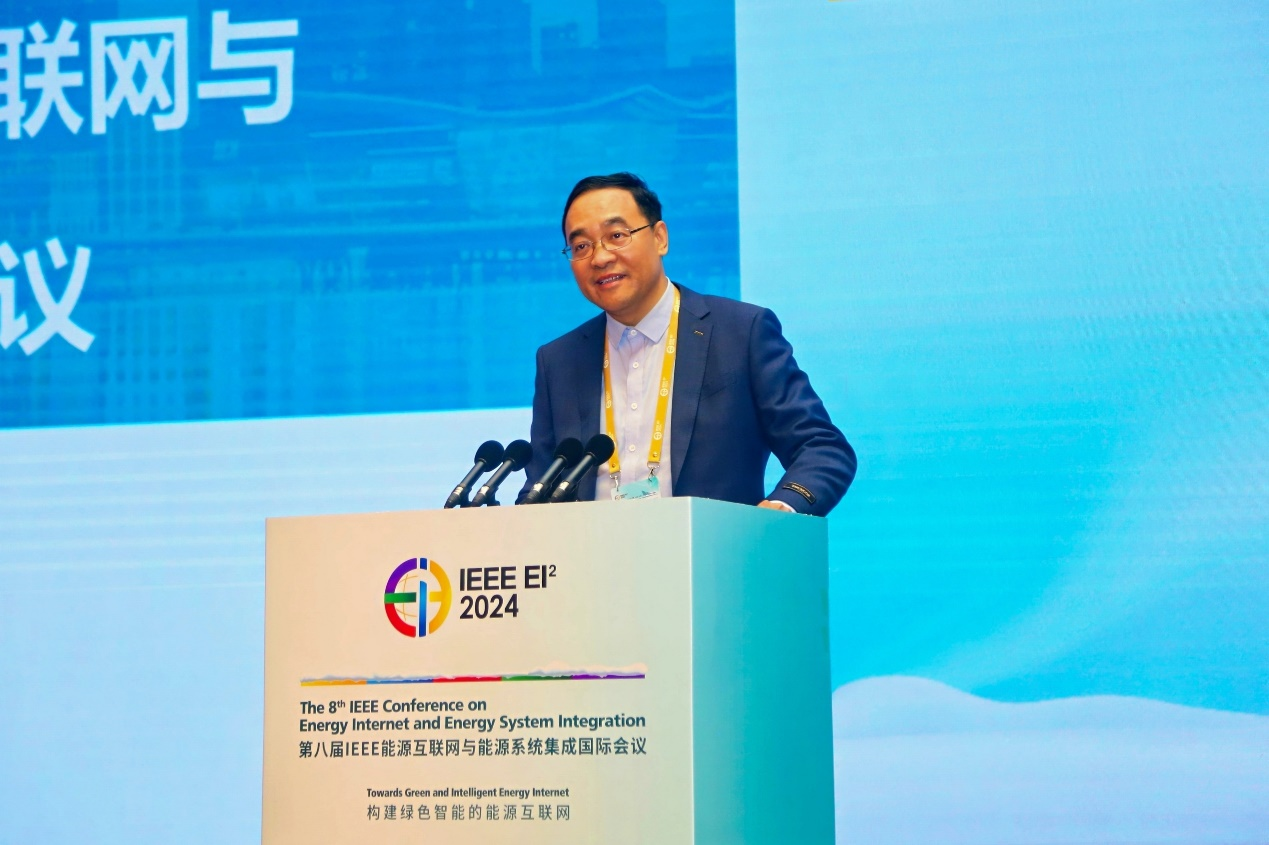
Sun Hongbin’s speech
A special ceremony for the launch of the “Thousand PhD — Liaoning Energy Forum” was held, with Wang Qingdong, Wang Yuhui, Zhang Haibo, Liu Weidong, Tang Ruhai, and Jia Yuming jointly witnessing the launch of the forum.
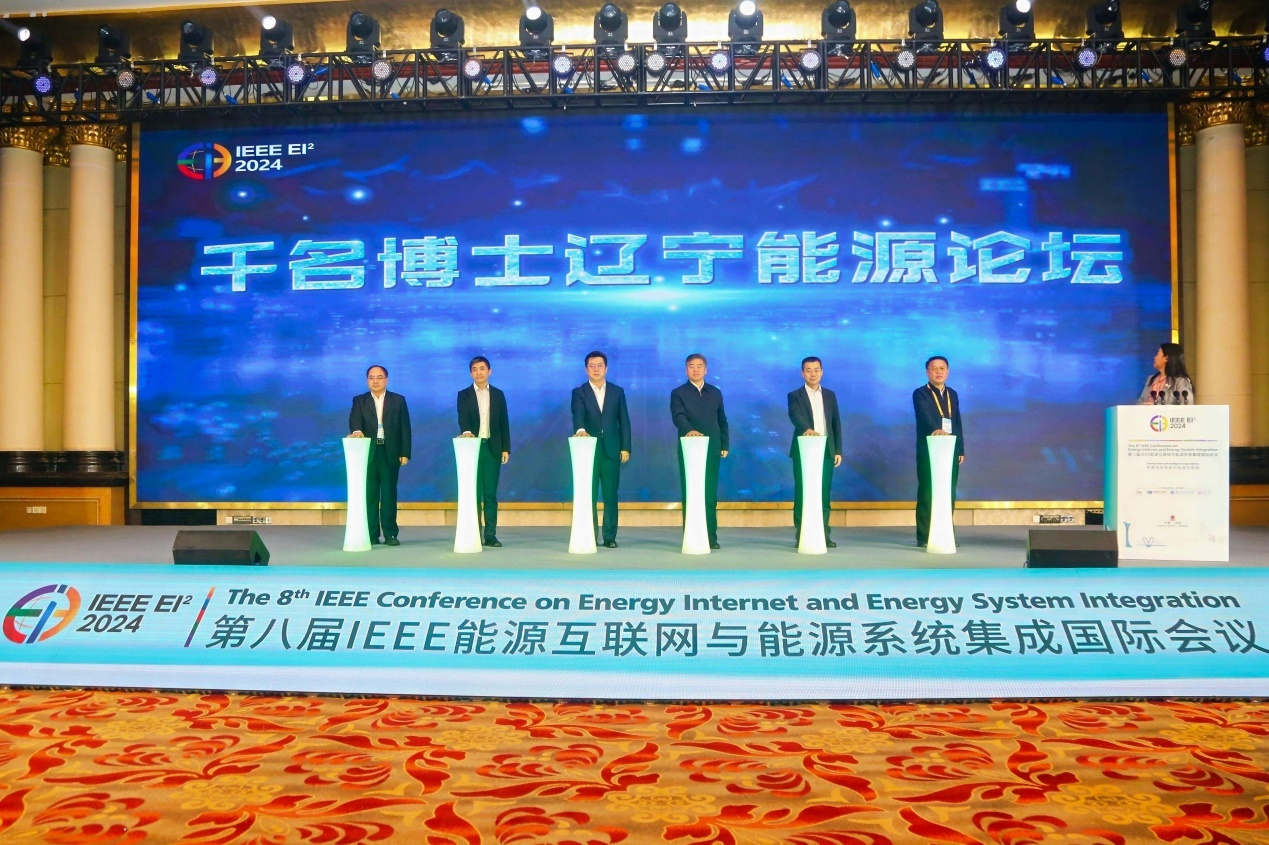
Launch Ceremony of the “Thousand PhD — Liaoning Energy Forum”
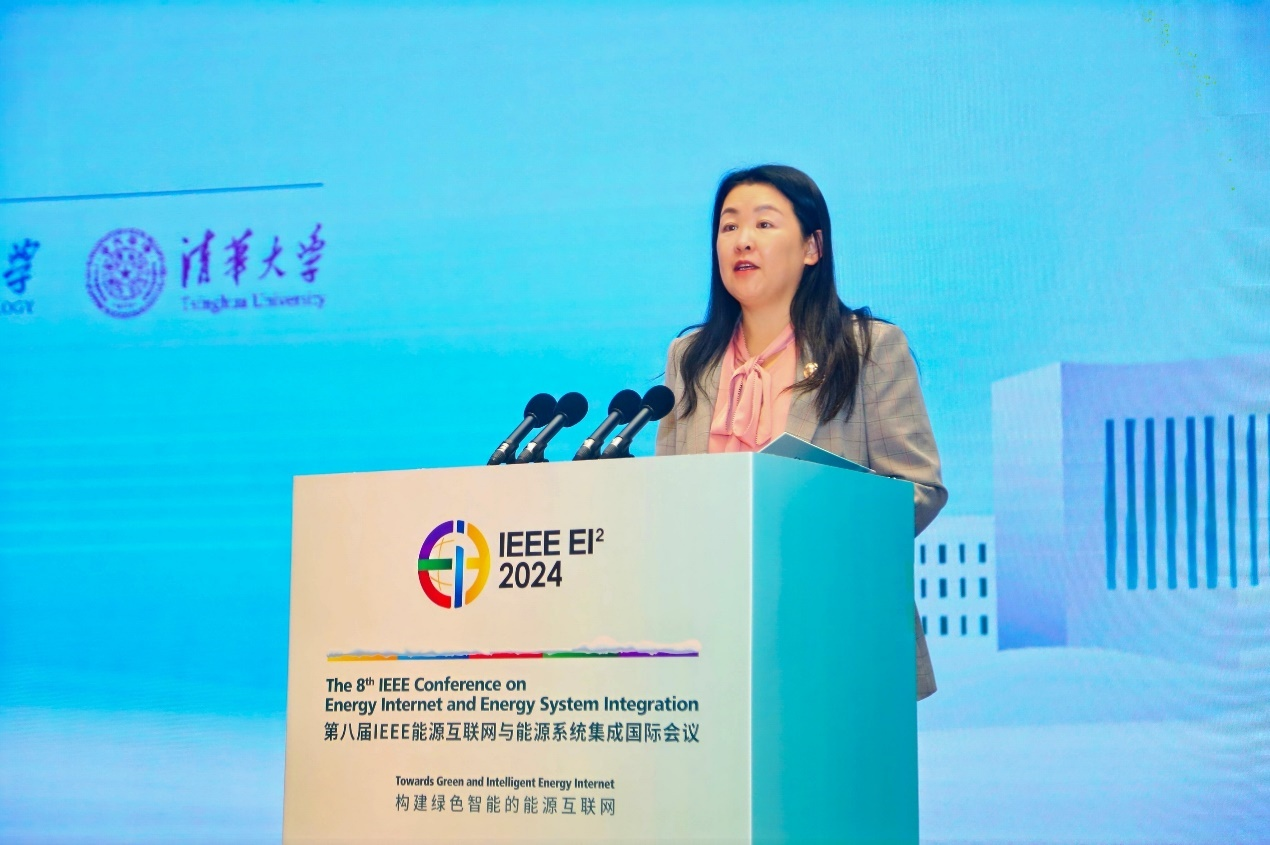
Chen Mei hosted the opening ceremony.
The conference's report session invited many academicians and experts to give presentations, covering various cutting-edge and hot topics in the electrical energy field.
Wu Jiangxing gave a report titled "Efficient and Flexible Load Microgrid System, EFLM," where he detailed how the EFLM system leads the direction of new type power research and its importance in achieving real-time green energy consumption and contributing to the construction of an intelligent green energy system.
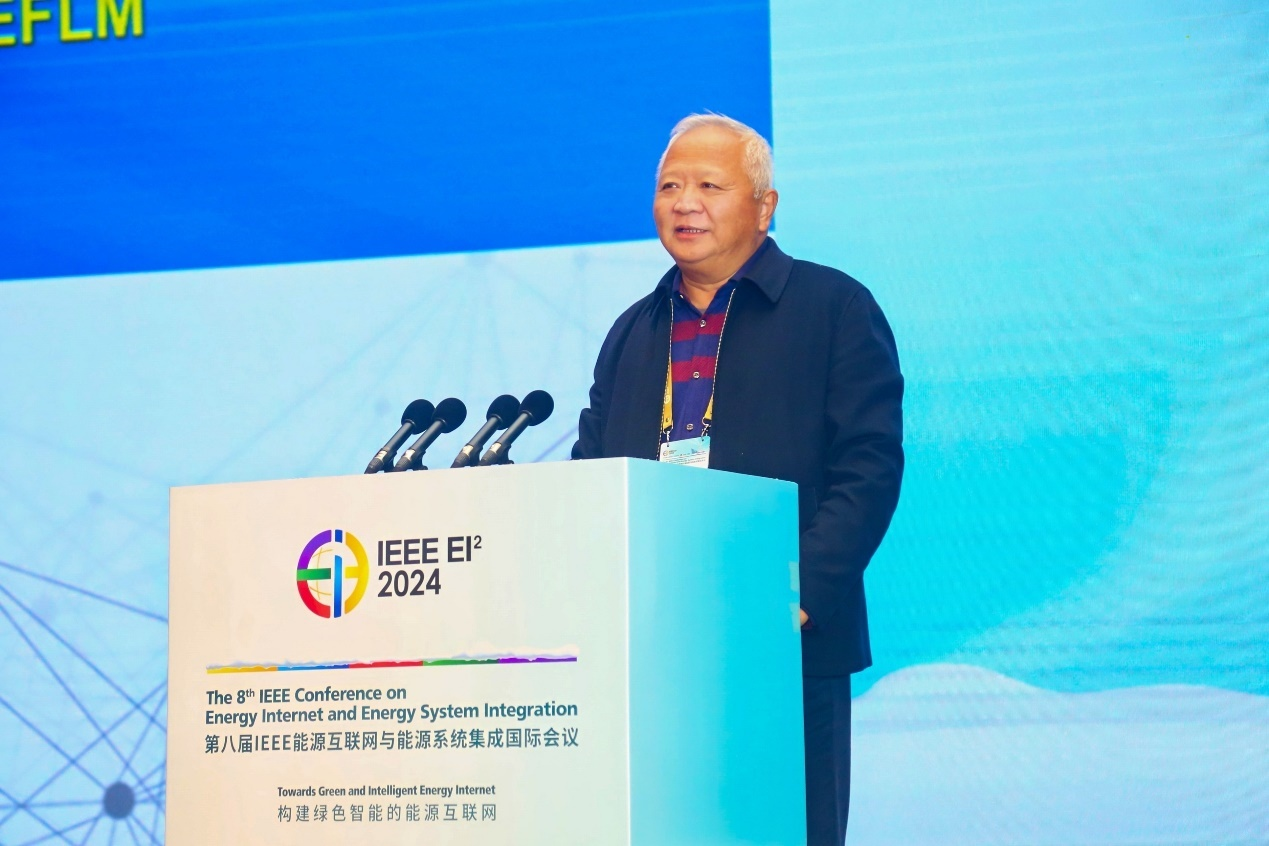
Wu Jiangxing gave the report.
Tang Lixin, in his report titled "Data Analysis and Optimization in Intelligent Industry," shared the application of data analysis and system optimization in industrial intelligence, including production logistics energy optimization, quality technical systems, and environmental analysis optimization.
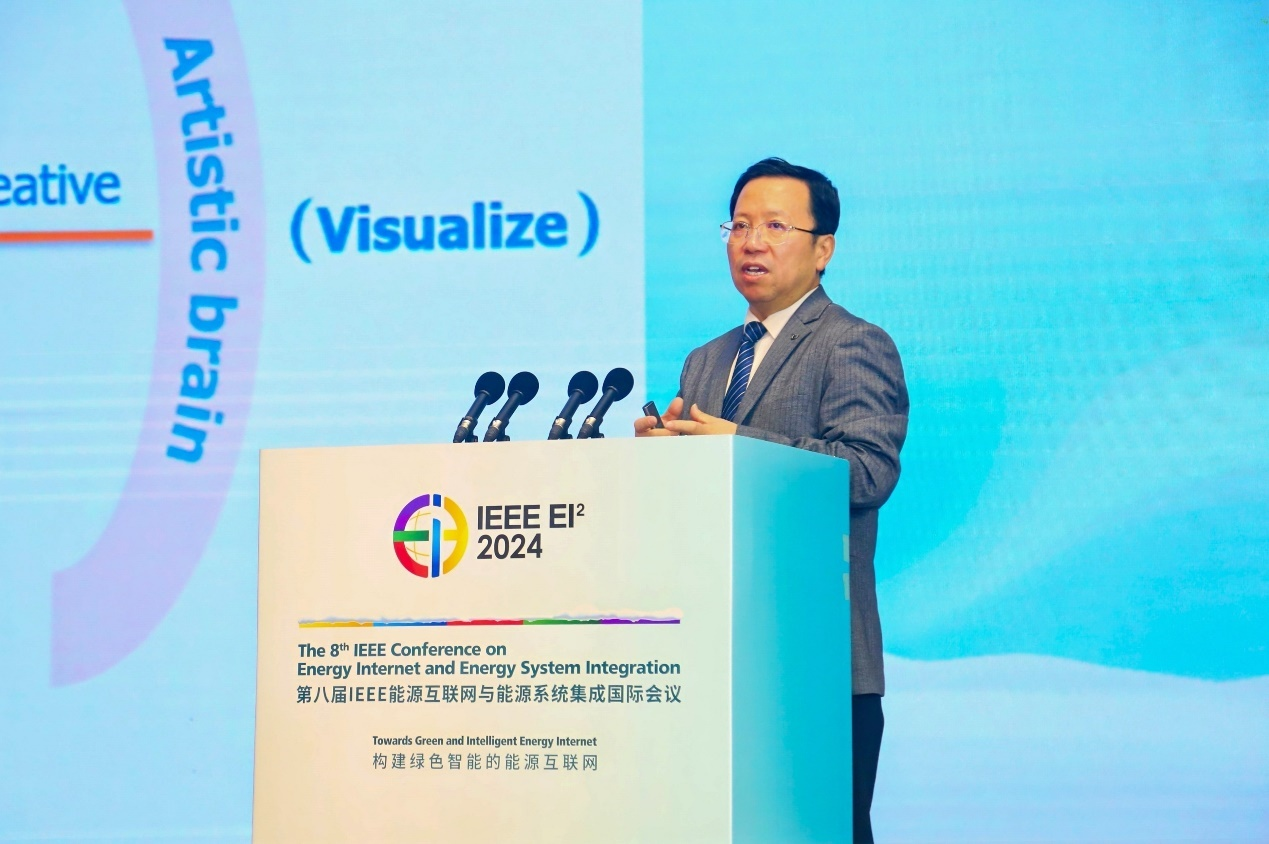
Tang Lixin gave the report.
Zhong Zhiyong, combining his recent work practices, delivered a report titled "Advances in Smart Grid Technology: Opportunities and Challenges Brought by Artificial Intelligence and Digital Twins," in which he thoroughly analyzed the applications of AI and digital twins in addressing challenges in smart grids, involving prediction, monitoring, state estimation, and outlook for their future development.
Zhang Yan brought a special report titled "Energy Informatics: Frontiers and Prospects," which comprehensively reviewed the new applications and research issues of ICT technologies in intelligent energy systems, and pointed out future research directions.
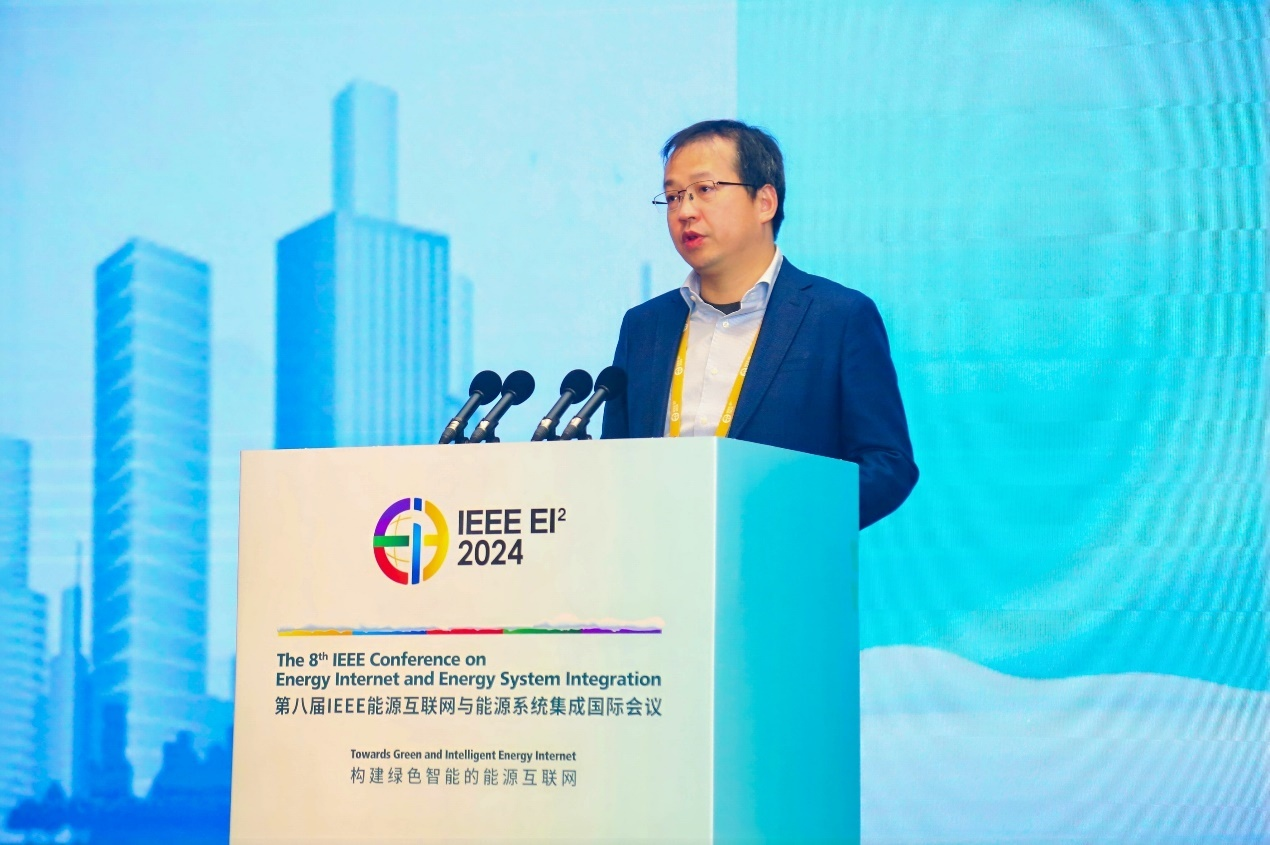
Zhang Yan gave the report.
Wang Zengping gave a report on "The Impact and Countermeasures of New Type Power System Development on Relay Protection," discussing safety risks brought by extreme weather and the development of power systems, proposing new differential protection principles and protection modes based on transient characteristics to enhance relay protection performance.
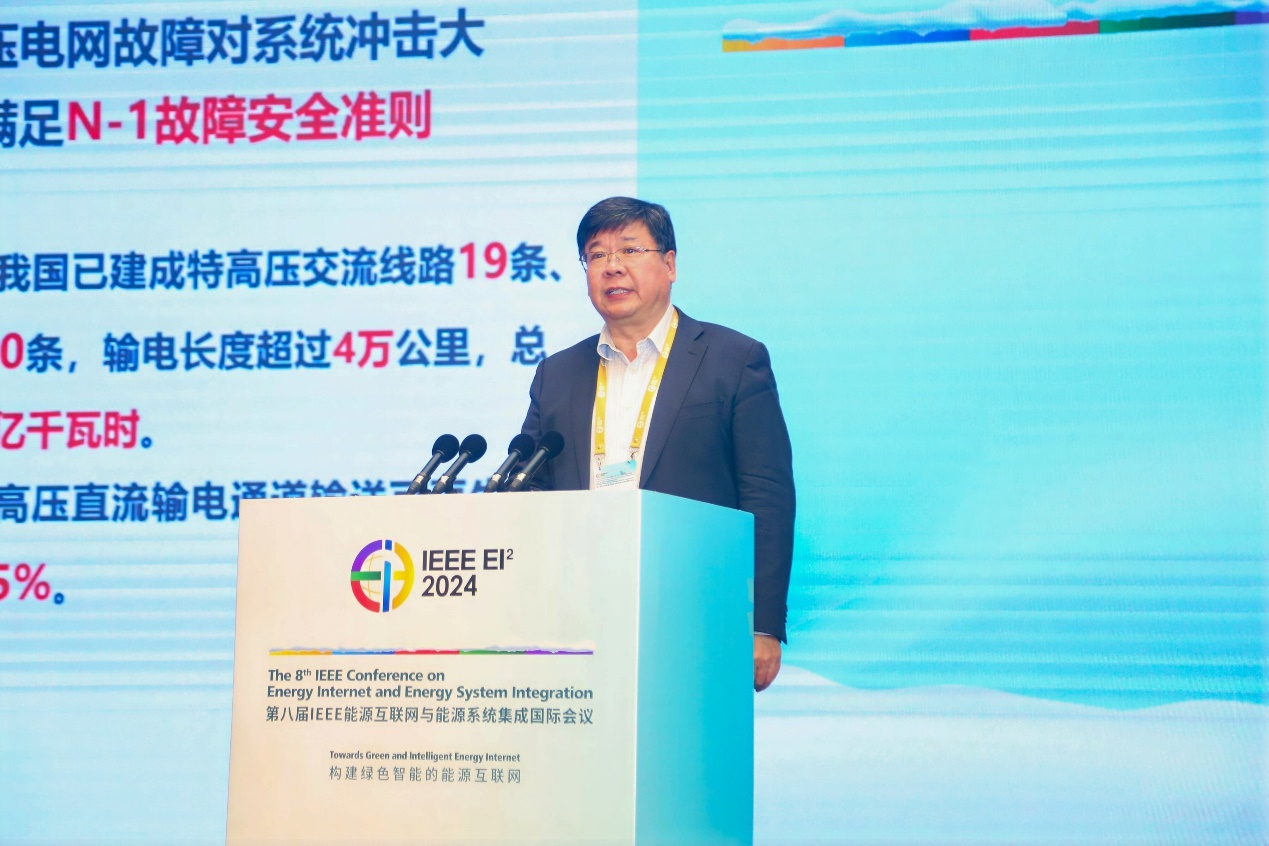
Wang Zengping gave the report.
Gao Kunlun gave a report titled "Intelligent Computing Technology and Applications in Power Systems," revealing the connotation of intelligent computing technologies in power systems, including methods like graph neural networks, and a power intelligent computing framework based on a hyper-converged heterogeneous platform.
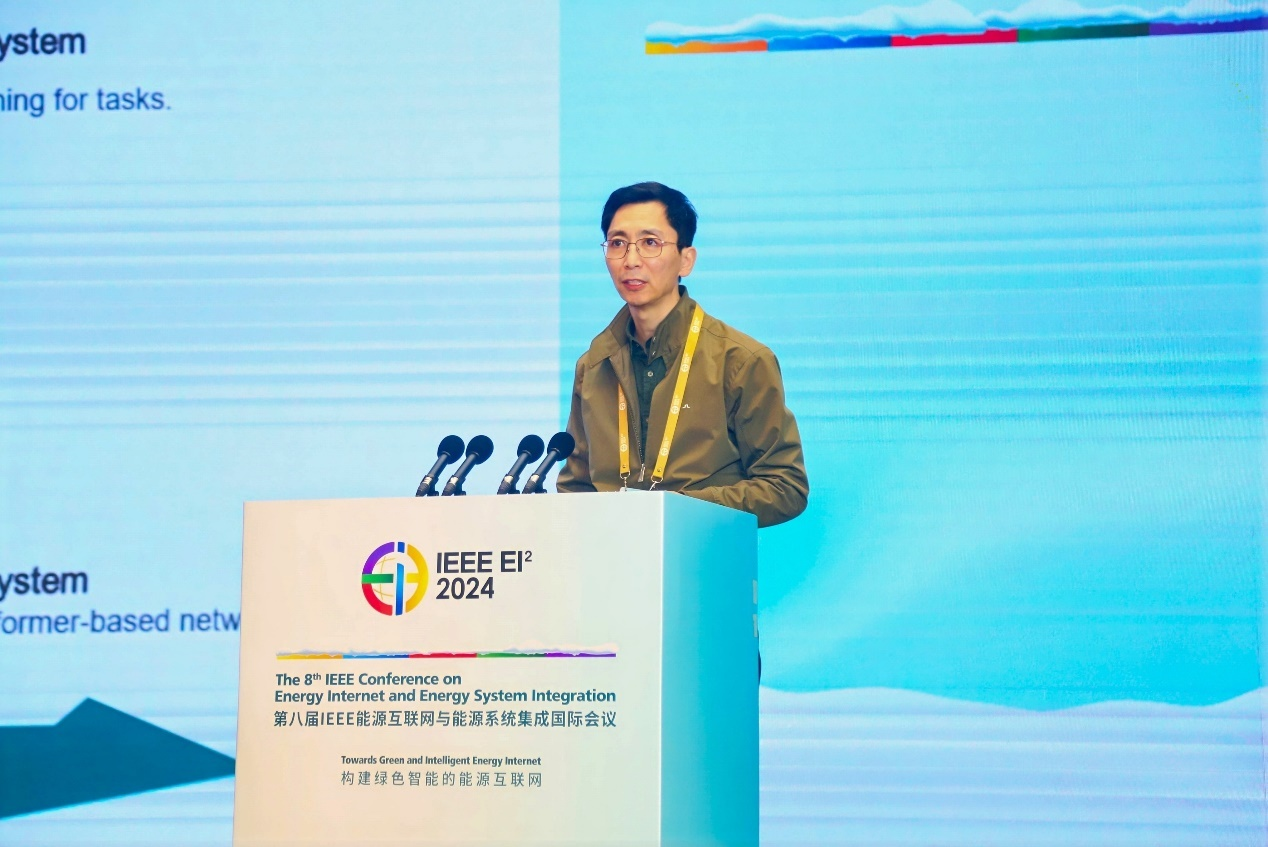
Gao Kunlun gave the report.
The conference report session was hosted sequentially by Sun Hongbin, Sun Qiuyan, Sun Dayan, and Professor Guo Qinglai from Tsinghua University.
During the conference, more than 70 academic activities were organized, including 21 series forums on smart grid and energy storage technology, a journal editor-in-chief face-to-face forum, a forum for deans of electrical engineering colleges in Northeast China, a forum on electrical talent cultivation, a youth innovation forum, a postdoctoral innovation talent program frontier forum, a post-doctoral special assistant forum, a female scientist forum, and eight special forums, as well as several thematic workshops, special sessions, oral presentations, and poster displays. These activities focused on research hot topics in energy internet technologies and system integration, control and optimization, energy security and risk artificial intelligence technologies, energy market energy trading, etc., sharing the most innovative and leading-edge scientific and technological achievements in the electrical energy field, and discussing future industrial development directions.

















 News & Events
News & Events